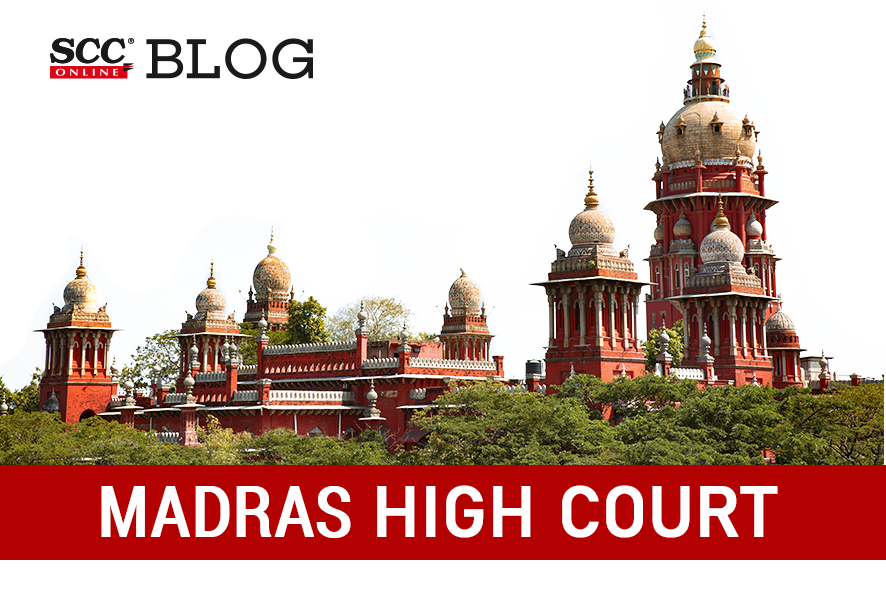Madras High Court: In a writ petition filed by AR Rahman and other music composers against the order of the Principal Commissioner of Central Goods and Services Tax (‘CGST’) & Central Excise for levying service tax on transfer of copyright in musical work for the period 2013-2017, and quash the same, as it is beyond the scope of Section 174(2) of the CGST Act and travels beyond Section 66-D(1) of the Finance Act, 1994 and Entry No.9, Notification No. 25/2012 dated 20-06-2012, Dr. Anita Sumanth, J. after taking cue from the proviso to Section 174(2) of the CGST Act, held that the assumption of jurisdiction by the officials of Director General of GST Intelligence (‘DGGI’) was valid.
This case relates to the liability to Service tax under the Finance Act 1994 (‘Act, 1994’) for transfer of copyright in musical work by music composers and the exemption they seek in terms of Exemption Notification 25/2012.
The issue was whether the Notifications under which DGGI officials have drawn sustenance to issue show cause notices for assessment under the Finance Act 1994, survive the transition from the erstwhile regime of taxation (Service tax) to the new regime of GST, effective from 01-07-2017, and as a consequence ,whether the assumption of jurisdiction by the DGGI for issuance of show cause notice under Finance Act 1994 read with Section 174(2) of the CGST Act, is proper in law?
The Court said that the levies under several revenue enactments including service tax, stood subsumed into the GST regime, and Central and State Statutes were enacted from and with effect from 01-07-2017 as comprehensive codes to provide for all indirect levies under one umbrella. The Finance Act, 1994 levying Service tax was omitted by Section 173 of the CGST Act. The GST enactments provide for sunset clauses and under the CGST Act, the relevant provision is Section 174.
The Court noted that in terms of Notification No. 2/2015-ST dated 10-02-2015, the Board had specified that the Principal Director General of Central Excise Intelligence shall have jurisdiction over the Principal Commissioners of Service Tax or the Commissioners of Central Excise, as the case may be, for the purpose of assigning show cause notices issued by the Directorate General of Central Excise Intelligence, for adjudication, by such Principal Commissioner of Service Tax or the Principal Commissioners of Central Excise or the Commissioners of Service Tax or Commissioners of Central Excise.
Further, vide Notification 14 of 2017 dated 09-06-2017, the Central Government has directed that the powers exercisable by the Central Board of Excise and Customs under Rule 3 of the Central Excise Rules, 2002 and Rule 3 of the Service Tax Rules, 1994 may be exercised by the Principal Chief Commissioner of Central Excise and Service Tax or the Chief Commissioner of Central Excise and Service Tax for the purpose of assignment of adjudication of notices to show cause issued under the provisions of the Central Excise Act, 1944 or Finance Act, 1994 to Central Excise Officer subordinate to them.
The case of the petitioners is that the aforesaid Notifications under which the officials of the DGGI have assumed jurisdiction have not been expressly saved under Section 174(2) of the CGST Act and hence the impugned orders/notice are non-est in law.
The Court took note of Brihan Maharashtra Sugar Syndicate Ltd. v. Janardan Ramchandra Kulkarni, (1960) 3 SCR 85 and said that Section 174(3) only refers to Section 6 of the General Clauses Act, 1897 and not to Section 24, and viewed that in interpreting the effect of repeal and savings clauses, a view that ensures smooth continuity rather than one that disrupts the flow of the levy itself must be adopted. In doing so, the Court must consider if the new enactment specifically militates against such continuance.
Further, the Court said that the indirect tax departments have, over the years, followed the practice of issuance of show cause notices by one authority with adjudication by another. While there can be no dispute with the proposition that what is prescribed has to be done as per the prescription, and in no other way, the dual procedure followed hitherto, is explained by the respondents, as a measure, and in the interests of, administrative feasibility. This is a legitimate explanation, and the aforesaid procedure has withstood the test of time.
The Court after taking cue from the proviso to Section 174(2)(c), said that it states that repeal as per sub-section (1) shall not affect any rights, privileges or obligations or liability acquired, accrued or incurred under the old Act and the proviso carves out an exception regarding tax exemption granted as an investment against investment through ‘Notification’. In such cases, exemptions shall continue until rescinded. Therefore, it implies that Notifications in other situations will continue.
Thus, the Court held that the assumption of jurisdiction by the officials of theDGGI was valid.
[Amirta International Institute of Hotel Management v Principal Commissioner of CGST & Central Excise, 2023 SCC OnLine Mad 512, decided on 02-02-2023]
Judgment by: Justice Dr. Anita Sumanth
Advocates who appeared in this case :
For Petitioner: Advocate Radhika Chandrasekhar, Advocate Joseph Prabakar;
For Respondents: Additional Solicitor General. R. Sankara Narayanan, Senior Standing Counsel Hema Muralikrishnan, Senior Central Government Standing Counsel Rajnish Pathiyil Senior Panel Counsel V. Sundareswaran.
*Apoorva Goel, Editorial Assistant has reported this brief.








Good Compilation